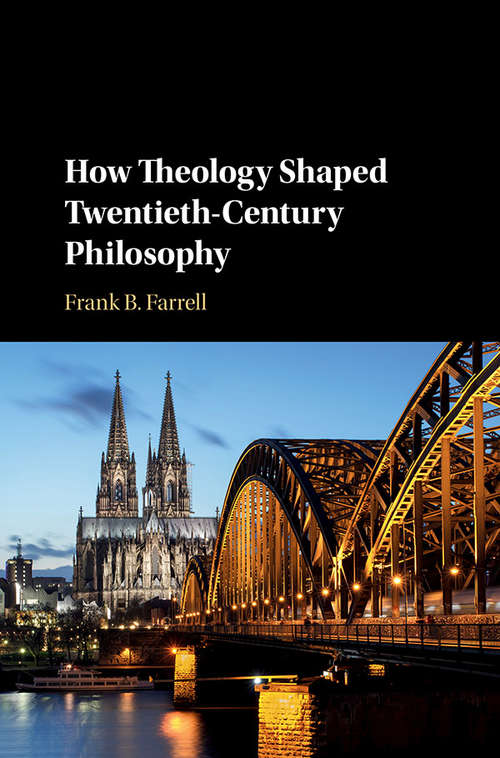How Theology Shaped Twentieth-Century Philosophy
By:
Sign Up Now!
Already a Member? Log In
You must be logged into Bookshare to access this title.
Learn about membership options,
or view our freely available titles.
- Synopsis
- Medieval theology had an important influence on later philosophy which is visible in the empiricisms of Russell, Carnap, and Quine. Other thinkers, including McDowell, Kripke, and Dennett, show how we can overcome the distorting effects of that theological ecosystem on our accounts of the nature of reality and our relationship to it. In a different philosophical tradition, Hegel uses a secularized version of Christianity to argue for a kind of human knowledge that overcomes the influences of late-medieval voluntarism, and some twentieth-century thinkers, including Benjamin and Derrida, instead defend a Jewish-influenced notion of the religious sublime. Frank B. Farrell analyzes and connects philosophers of different eras and traditions to show that modern philosophy has developed its practices on a terrain marked out by earlier theological and religious ideas, and considers how different philosophers have both embraced, and tried to escape from, those deep-seated patterns of thought.
- Copyright:
- 2019
Book Details
- Book Quality:
- Publisher Quality
- ISBN-13:
- 9781108662161
- Related ISBNs:
- 9781108491716, 9781108491716
- Publisher:
- Cambridge University Press
- Date of Addition:
- 03/14/19
- Copyrighted By:
- Frank B. Farrell
- Adult content:
- No
- Language:
- English
- Has Image Descriptions:
- No
- Categories:
- History, Nonfiction, Philosophy
- Submitted By:
- Bookshare Staff
- Usage Restrictions:
- This is a copyrighted book.
